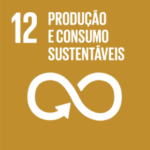
Vegetarian Challenge returns with itinerant vegetarian foodtruck
Maia, Braga, Lisbon, Coimbra, Sintra and Tavira will host the Desafio Vegetariano foodtruck, which will offer Portuguese snacks in a 100% vegetable version, with the
We didn't find any happenings mapped to your criteria.
Try the traditional search to find articles not yet mapped with RUA.
We didn't find any happenings mapped to your criteria.
Try the traditional search to find articles not yet mapped with RUA.
We didn't find any happenings mapped to your criteria.
Try the traditional search to find articles not yet mapped with RUA.
We didn't find any happenings mapped to your criteria.
Try the traditional search to find articles not yet mapped with RUA.
In 2023, Portugal recorded a slight decrease in the number of vegans, vegetarians and flexitarians compared to the previous study carried out in 2021, and is among the lowest in Europe.
It sounds like good news, but the trend is actually downwards.
The veggie phenomenon, which brings together vegans, vegetarians and flexitarians, has slowed down in the last two years among the adult population in Portugal, according to the report “The Green Revolution“. Although the movement has been constantly evolving since 2019, there was a drop from 11.9% to 10.4%, one of the lowest figures in Europe.
This slight drop means that more than 90,000 veggie consumers have been lost to the omnivore diet, mainly vegetarians and vegans.
According to the report, carried out by Spanish innovation consultancy Lantern, the end of the pandemic “seems to have had a ‘rebound effect’ on the population, which is eager for pleasure and enjoyment in every way, including food.” Speaking to PÚBLICODavid Lacasa, a partner at Lantern, also adds the price of the products as a possible explanation for this drop, although it is not “a barrier to changing the diet, as there are other more economical food options”.
The total number of vegetarians and vegans continues to grow slowly, despite having fallen from 2.6% to 1.8% in the last two years. With regard to flexitarians, 8.6% of Portuguese – the equivalent of 750,000 Portuguese – currently follow this diet, 0.7 points less than two years ago.
The European countries lagging furthest behind are Portugal, Italy, Spain and France, while Germany (the country with the largest plant-based food market in Europe), Austria and the Netherlands are leading the movement – in these countries, veggies already make up a third of the population.
“Clearly the cultural factor has a very strong impact on the evolution of the plant-based market. But it’s also true that in the Netherlands or Germany the number of vegans and vegetarians is much higher and so is environmental awareness, two important drivers of this market,” Lacasa told Público.
Women continue to lead the veggie trend at national level, especially among vegetarians and vegans. One in nine women is veggie (11.2%), compared to 7.1% of men.
“It’s possible to think that women adhere to this diet with more conviction than men because they prioritize health as if it were a driving force,” reads the report.
Although veggies are represented in all age groups, they are mainly concentrated between the ages of 25 and 34 (16%), while 13% are in the population aged over 65 (a mostly flexitarian group).
“As far as households are concerned, it is common for people in the same household to follow the same diet, probably due to shared lifestyles, common values and because it is easier to manage the shopping and preparation of meals,” says the study.
Motivations for following a veggie diet
For flexitarians, the primary motivation for following a veggie diet is health. Vegetarians and vegans, on the other hand, are more motivated by concern for the environment and animals.” Concern for sustainability also emerged as an argument for 41% of flexitarians.
89.6% of Portuguese are omnivores, but 49% of them admit to reducing their consumption of meat, especially red meat.
Now, the other side of the coin: 51% of omnivores are not reducing their meat consumption because they like meat (69%), out of habit (36%) and because eating meat is considered healthy (23%).
In addition, there is a group of consumers called “super carnivores” who declare that they “love meat and eat it almost every day. This sub-group is more representative of males (19%) (…) and young people (32% under 25),” notes the study.

In the last year, plant-based alternatives to dairy products have continued to grow in Portugal, while plant-based meat alternatives have seen a drop in sales volume, according to data from Nielsen IQ at the end of 2023.
In Europe, the market for plant-based products continued to grow more moderately overall. The United States “has one of the most developed plant-based markets in the world, with which it would be difficult to find coherent parallels with European countries. In fact, its plant-based market, which amounts to 8 billion dollars (SPINS data), exceeds all European markets.”
With regard to new technologies such as laboratory meat, which seek to develop alternatives to proteins and solve the problems identified in traditional products, the report states that these “are still a risky bet because, although on paper they appear to be promising technologies, there are still many unknowns in their final solution”.
The report also states that, despite the advance of these technologies, they must be accompanied by “a system that approves their development and marketing, as the Netherlands recently did by authorizing the testing, but not the marketing, of meat products grown in laboratories”.
Given the slowdown in the growth of plant-based categories and the diversification of technologies and investment, the report concludes that the veggie movement has reached a “point of maturity” – plant-based diets are here to stay, especially among young people, “who are driving the trend and adopting new eating habits.”
“The time has come to take a broader look at the world of vegetables and really rethink what the healthiest and most environmentally and animal-friendly food option is,” without forgetting “the diversity of vegetables from the garden, the versatility of legumes or the nutritional richness of nuts.”
The study also states that “the veggie diet narrative is evolving and consumers want to eat less meat, but not necessarily inferior substitutes”, citing the example of Portuguese cuisine, which has several veggie offerings, such as Alentejo’s gazpacho.
The results of this third edition of “The Green Revolution” were collected based on 1005 interviews with a representation of the Portuguese population by gender, age and geographical area (margin of error of 3.2%), during November 2023.


Maia, Braga, Lisbon, Coimbra, Sintra and Tavira will host the Desafio Vegetariano foodtruck, which will offer Portuguese snacks in a 100% vegetable version, with the

The most festive month of the Portuguese year has arrived. At Peggada, we’ve put together the best tips so that you can make the most

It’s far from the city center, in a neighborhood that has only gained from an out-of-the-box offer. Alecrim aos Molhos is a cafeteria, a grocery

This article promotes an action that encourages the reduction of waste generation through prevention, reduction, recycling, and reuse.
➡️ To discover more businesses that are aligned with Sustainable Development Goal 12 “Sustainable Production and Consumption” click here.
➡️ For news, tips and interviews about this topic, click here.
➡️ Want to know more about the 17 United Nations Sustainable Development Goals? Click here
Esta publicação também está disponível em:
![]() Português (Portuguese (Portugal))
Português (Portuguese (Portugal))

